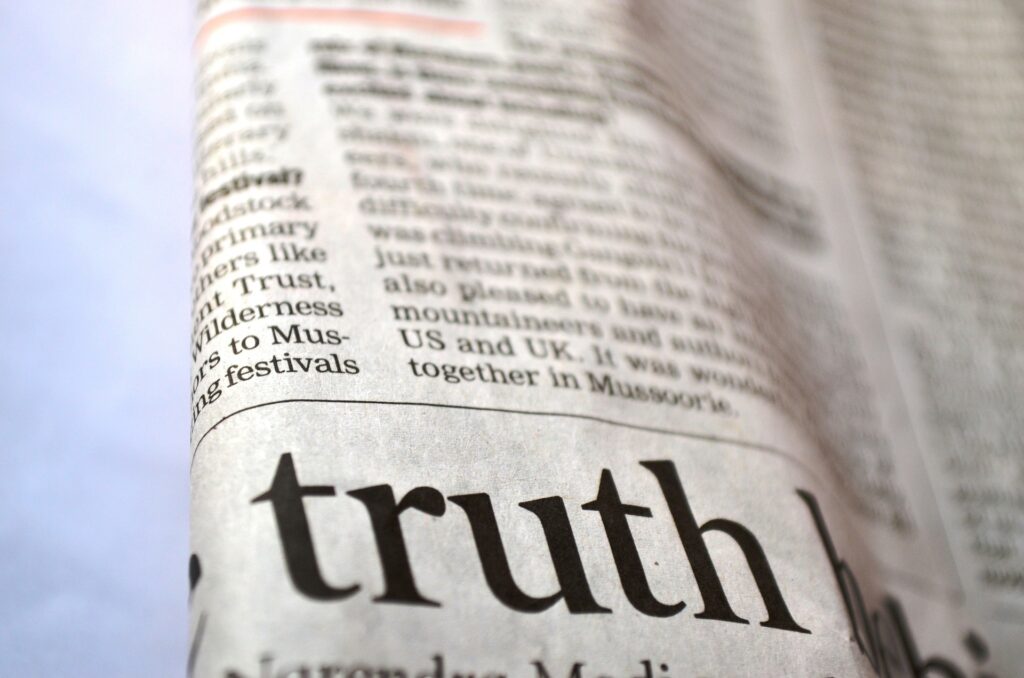In this period of Covid and misinformation about it and the US elections, my friends wonder how they can find news they can trust. Here are some musings..
First, the First Amendment wasn’t created to allow people to use 4-letter words on TV but because citizens need good information in order to self-govern. So having quality news in large part requires citizen demand.
Next, good news needs good journalists. Back in the day when newspapers were delivered and the three TV networks all broadcast evening news, I watched Huntley-Brinkley and Walter Cronkite with my folks and started reading the newspaper when I was in grade school. I first suspected news coverage was flawed when Cronkite, “the most trusted man in America”, visited Vietnam and concluded that the war wasn’t winnable, an assessment that was considered the reason LBJ didn’t run for another term. I was then in high school, my male classmates would soon to be eligible for the draft and, after all Cronkite’s years of pro-war coverage, I saw this as a betrayal.
A few years later I moved to Europe and saw how news about Nixon’s Watergate scandal and the US engagement in Vietnam looked much different. Though it makes sense that an in-group privileges its own perspectives, I saw how such privileging encourages a bias that prevents one from seeing the truth. This was an important shift in my ability to look objectively at my homeland.
Commercial business interests have long dominated US reporting, but as Vietnam wound down, the three major US networks started regarding TV news more as a money-maker than an obligation and used increasingly sophisticated tools to micro-measure audience attention. During the next few decades, media ownership concentrated in fewer and fewer hands, until by the late ’90s only six conglomerates worldwide owned all major media production and distribution. Jeffrey Cohen of FAIR once remarked that because news was never a big money-maker, for such corporations it was seen as a nuisance and treated as an afterthought. In short, the law that says to have a license, a broadcaster must serve the public interest became interpreted as to serve what the public is interested in, rather than what serves our best interest.
Over time I learned to find journalists who seemed sincerely interested in pursuing truth, like Woodward and Bernstein did in their investigation into Nixon’s break-in of the Democratic Party’s national headquarters. Others stand out too. Robert Parry who investigated the CIA’s role in the selling of crack cocaine to raise money to buy arms for the Contra rebels in Nicaragua; Gary Webb whose pursuit of truth around aspects of that same story cost him his life; Greg Palast who broke the story of voter cleansing in Florida during the 2000 election that ABC wouldn’t broadcast (but the BBC would and Palast is still covering election suppressing); Peter Arnett who was fired by NBC for speaking his truth about the Iraq war on the wrong venue. FOX news fired Jane Akre and Steve Wilson over their story on bovine growth hormone. These journalists epitomize the noblest qualities of their profession.
Unfortunately, such qualities were in short supply during the 2015-2016 presidential primary season when news outlets went after the outrageous antics of the TV reality show star who was running for president. But since then, accepting responsibility for their role in unwittingly supporting a candidate for all the wrong reasons, journalists have moved away from the misguided “two-side-ism” coverage to find and present the truth.
In sum, in a system where news is commercially funded, it will contain commercial qualities. But as citizens demand more regard for factual information, more and more outlets are supplying it. Absorbing it, though, requires being able to look critically at our own culture and understand our cultural bias. So now, in order to value truth from journalists, we’re going to have to be able to handle it.
